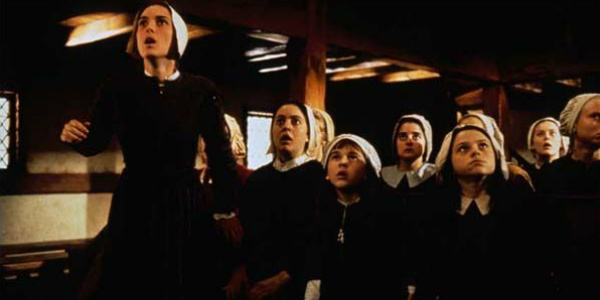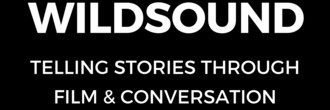It was an honor to chat with the very talented screenwriter Maria Nation. For any new or up and coming screenwriter, this interview is a must read as she gives a lot of insight on her profession and what it takes to succeed in Hollywood. Enjoy!
Matthew Toffolo: Tell us about “A Street Cat Named Bob”? How was the process writing a screenplay based on a best selling novel?
Maria Nation: How much creative control did you have? ** A Street Cat Named Bob is a true story about James Bowen’s unlikely journey from a vulnerable, homeless heroin addict to sobriety (and celebrity!) – thanks to the influence of a ginger street cat who refused to leave James’ side. It was a fun project to write, with interesting characters and the great challenge of creating a main character out of …a cat. I was brought into the project by the director, Roger Spottiswoode, with whom I’ve had the pleasure of working many times. It was late in the game, meaning the film was about to go into production but the script needed work. I ended up doing a page one revision. As far as adapting the best seller goes – I didn’t treat it any differently than any other adaptation job. Best seller or not, I think it’s important to respect the original writer and story while adapting it to the needs and limitations (and advantages) of the screenplay form. The key to doing this successfully is to understand which of a book’s elements are necessary for the screen story, which of these beats are cinematic and, when they are not, how can they best be interpreted for the screen. How much creative control did I have? Within the relatively narrow parameters of this particular project (time was of the essence, it was based on a well known story, locations were already being scouted, the director already had an idea of the tone he wanted, etc) I had a pretty free hand. But the notion of “creative control” as it applies to the screenwriter fraught. Unless you write, direct, edit and produce the project single-handedly there are always other creative forces at play. You don’t fly solo. That is the name of the game and if a writer can’t be comfortable with this he or she might want to find another line of work. That being said, there is a moment in the process, when we writers have complete creative control. It’s when we’re alone with the blank page and we go to work on it. As soon as we write the beautiful words THE END, and hand it over to the rest of the team it becomes a collaboration. That’s just the way it is.
PHOTO: A Street Cat Named Bob:

MT: What screenplay that you have written has been your most valuable experience?
MN: I must say they have all been valuable experiences. One of my recent projects, a script based on the sinking of the Costa Concordia cruise liner, pushed me to figure out how to write way outside my comfort zone. It was an action/disaster movie set on a ship. And, because I knew nothing about any of those things, I was pretty sure I was going to get my ass fired. But I studied how other writers write action – how are the scenes constructed? What is the scene description like that sets up the sense of pace and suspense? Etc etc. It was an interesting process – and in the end I didn’t get fired. Valuable experience: “No matter how long you’ve been writing, you’re always a student. Go study.” One of my very first assignments was based on the fine novel, Blue River, by Ethan Canin. I loved the book and figured out how to crack the story and handed in my first draft. The producers came back with such extreme notes – changing who the main character would be, which upended the entire story – that I had no idea how to even approach my second draft. Being a novice, I wrote notes back on their notes, wanting to know what they were trying to go for, etc. In the meantime they had hired the wonderful director Larry Elikann and before I had to launch into the revision that would have ruined the story, Larry told them not to touch a word of the script, and they were lucky to have it. Thanks to him they shot my first draft and I got the reputation for delivering shootable first drafts. (Which of course was a bit of a stretch since it was my first script – but it made my career.) I guess the valuable experience in that one is “hope to god you get a director like Larry Elikann.”
MT: Have you ever been surprised after a production wraps on the success or non-success of a film/TV show you’ve written?
MN: I’m assuming you’ve experienced both pendulums – A film that you assumed was going to be a hit and the audience/critics didn’t respond. And a film that you assumed wasn’t going to do well and then ended up doing very well. William Goldman said it best: “No one knows anything.” So, yes, it’s always a surprise. The network had high hopes for a miniseries I wrote years ago. The Salem Witch Trials had a huge, prestigious cast, with Alan Bates, Shirley MacLaine, Peter Ustinov, Rebecca de Mornay, Kirstie Alley etc etc and the important subject had not been done on US networks, and it was a big deal. It died faster than one of the witches on the gallows. I recently wrote the Gabby Douglas story, which the entire world already knew thanks to the Olympic coverage a year earlier, and two unknowns cast as Gabby… and it has been a huge success – around the world. Go figure.
PHOTO: Winona Ryder in “The Salem Witch Trials”:

MT: How many uncredited “ghost writing” assignments have you had? Do you enjoy working on these assignments?
MN: Boy, I’ve done quite a few. Do I enjoy working on them? First, it’s important to understand that there is no such thing as a “ghost writer,” per se. When I am hired to doctor a script no one knows at the outset if I will get a credit – or not. The WGA has guidelines that define which writer or writers deserve a credit, and an arbitration team of fellow/sister writers makes the ultimate determination. On Street Cat Named Bob I was hired to do a small revision of a couple of the characters prior to casting. But the assignment snowballed and I ended up getting a shared credit. I actually love getting called to revise scripts. All screenwriters fall in love with certain scenes or characters (and if you don’t, god help you getting through your script.) The revision writer brings fresh eyes and there is no loyalty to any scene or beat or character. While I really hate knowing how painful the process is for the first writer (I was rewritten once – and it’s just awful) it is a fun challenge to make a script work; to see the weak spots and come up with solutions. It’s a different muscle than writing from scratch – even though very often the revision ends up being a page one original. But what I really love is that, generally speaking, I get called in to revise a script that is going into production. The pressure to perform is huge. There is no time for procrastination – or many notes from the network or producers. Often the director is already on board and I really l love working with directors (with some exceptions, of course). It’s all business; no nonsense and the entire vibe of the project is different than writing for development or on spec.
MT: What film, besides the films you worked on, have you seen the most in your life?
MN: Probably The Big Lebowski – which has zero influence on my work or career but I could watch it every day and be happy. Or perhaps Chinatown to be reminded of what it feels like to be in the shadow of Mt. Everest looking up.
MT: What makes a great screenwriter?
MN: A great screenwriter isn’t made; he/she is born. But, a working screenwriter? This person needs to build these muscles: determination, patience, imagination, curiosity, diligence, more diligence, humility, a desire to learn the craft, an understanding of human dynamics, human dysfuntionality, an ear for dialogue, a love of the art, a respect for your team – even when they drive you crazy, the art of collaboration – and did I mention diligence?
MT: When receiving notes from Producers and/or Production people on a screenplay you’ve written, what are you looking to receive to help you improve your story?
MN: And what are you not looking to receive? The best notes – rather, the notes I hope to get – respect the script but bring fresh eyes to my work. They show me the weak spots – and push me to try harder. Some of the best notes I’ve gotten are the ones that are the most difficult to hear because I don’t know, at first, how to accomplish them. They push me to dig deeper. The most fun notes to get (if any are fun) come from the production team, because they are 100% pragmatic: “We don’t have a staircase; rewrite the scene with a window.” “We’re over budget. Give us the same, rich story but lose five characters.” They aren’t easy to accomplish but they are pragmatic – not ego driven. The worst notes? The ones from frustrated writers who are directors or executives. Luckily these have been few – but they’re memorable. They aren’t pragmatic. They are completely subjective – and sometimes notes for notes sake.
MT: What advice would you have for people who want to be a screenwriter?
MN: Write. Watch movies or tv. Write some more. Read as many scripts as possible (there are a million online -no excuses). Write some more. Try to get a job as a story analyst (a reader). Do it for free if you have to. Out of college I was paid 50 bucks a script to read, synopsize and critique scripts for various producers and studios. I did this for years. Did you get that? For years. …Read. Synopsize. Critique… It forces you to think about a script in an entirely different way than watching a movie – and it’s better than any screenwriting course you can take. Finally: When you’re writing your script and you think it’s just too hard to go on and you’re tearing your hair out and you’re miserable… congratulations, you’re thinking like a professional writer. Except for, maybe, pouring cement, screenwriting is the hardest job out there. And there are days I’d rather be pouring cement. Good luck. Go tell a story.
_____
Interviewer Matthew Toffolo is currently the CEO of the WILDsound FEEDBACK Film & Writing Festival. The festival that showcases 10-20 screenplay and story readings performed by professional actors every month. And the FEEDBACK Monthly Fesival held in downtown Toronto on the last Thursday of every single month. Go to www.wildsound.ca for more information and to submit your work to the festival.


Reblogged this on WILDsound Writing and Film Festival Review.
LikeLike
Reblogged this on Thriller/Suspense Film and Writing Festival.
LikeLike
Reblogged this on Thriller/Suspense Film and Writing Festival.
LikeLike
Reblogged this on Matthew Toffolo's Summary.
LikeLike
Reblogged this on WILDsound Writing and Film Festival Review.
LikeLike
Reblogged this on WILDsound Writing and Film Festival Review.
LikeLike
Reblogged this on WILDsound Writing and Film Festival Review.
LikeLike